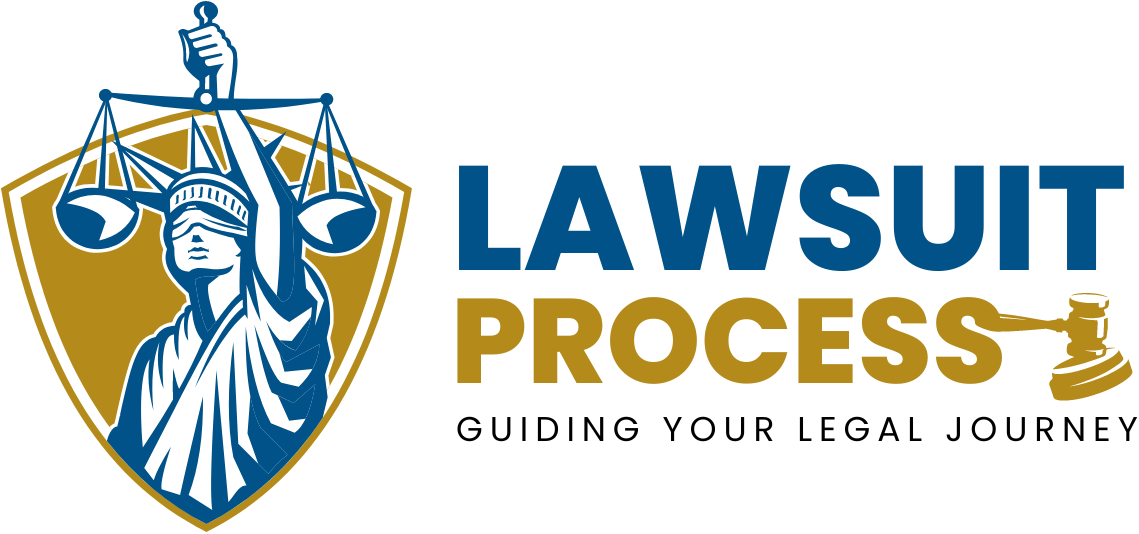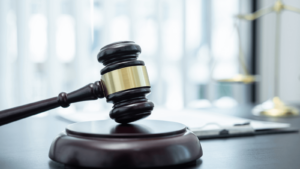A civil case is a legal dispute between two or more parties, typically involving contracts, property, personal injuries, or disputes over rights. Unlike criminal cases, civil cases focus on compensating the injured party rather than punishing the wrongdoer. So, it is good to know the steps in a civil case. This way, you can be better prepared.
Below is a detailed guide to the steps involved in a civil case, from filing the lawsuit to enforcing the judgment.
1. Filing a Complaint
The civil process begins when the plaintiff files a complaint with the appropriate court. The complaint is a legal document that outlines the nature of the dispute, the facts supporting the plaintiff’s claims, and the specific relief or damages being sought. This step is crucial because it sets the stage for the case and formally initiates the legal process.
2. Service of Process
Once the complaint is filed, the defendant must be formally notified of the lawsuit through a process called service of process. This involves delivering a copy of the complaint and a summons to the defendant. The summons informs the defendant of their obligation to respond and attend court proceedings. Service of process ensures that the defendant has an opportunity to prepare a defense.
3. Response (Answer)
The defendant has a limited time, typically 20 to 30 days, to respond to the complaint by filing an answer. In the answer, the defendant admits, denies, or claims insufficient knowledge about the allegations made in the complaint. The defendant may also assert counterclaims against the plaintiff or raise affirmative defenses, such as arguing that the statute of limitations has expired.
4. Pretrial Motions
Before moving forward, either party may file pretrial motions to resolve procedural or substantive issues. Common pretrial motions include:
- Motion to Dismiss: Asks the court to dismiss the case for lack of jurisdiction, failure to state a claim, or other reasons.
- Motion for Summary Judgment: Requests the court to decide the case or specific issues without a trial based on the evidence presented during discovery.
These motions can significantly affect the progress or outcome of the case.
5. Discovery
Discovery is the process where both parties exchange information and evidence relevant to the case. This stage ensures transparency and prepares both sides for trial. The main tools of discovery include:
- Interrogatories: Written questions that must be answered under oath.
- Depositions: Oral questioning of parties or witnesses under oath, recorded by a court reporter.
- Requests for Production: Demands for documents, electronic records, or physical evidence.
- Requests for Admission: Statements that the opposing party must admit or deny.
Discovery can be time-consuming but is vital for building a strong case.
6. Settlement Discussions
At any point during the case, the parties may engage in settlement discussions to resolve the dispute without going to trial. Settlement negotiations can occur informally or through formal processes like mediation or arbitration. Many civil cases are resolved at this stage, saving time and legal expenses for both parties.
7. Pretrial Conferences
The court may schedule pretrial conferences to help streamline the case and prepare for trial. These meetings involve the judge and the attorneys for both sides. They discuss unresolved issues, clarify the scope of the trial, and encourage settlement. Pretrial conferences are often used to set deadlines and resolve procedural matters.
8. Trial
If the case does not settle, it proceeds to trial. Trials can be heard by a judge (bench trial) or a jury (jury trial). The key stages of a trial include:
- Opening Statements: Each side presents an overview of their case.
- Presentation of Evidence: Witnesses testify, and documents or physical evidence are introduced.
- Cross-Examination: Opposing attorneys question witnesses to challenge their credibility or testimony.
- Closing Arguments: Each side summarizes their case and emphasizes key evidence.
- Jury Instructions: In jury trials, the judge provides guidance on how to evaluate the evidence and apply the law.
9. Verdict
The verdict is the formal decision in a civil trial. The burden of proof is lower in a civil trial than in a criminal trial. The plaintiff must prove their case by a “preponderance of the evidence,” meaning that their claims are more likely than not true. The verdict determines which party prevails and specifies any damages or remedies.
10. Post-Trial Motions
After the verdict, either party can file post-trial motions to address potential errors or seek a different outcome. Common post-trial motions include:
- Motion for a New Trial: Argues that errors during the trial warrant a new trial.
- Motion to Amend Judgment: Requests modifications to the court’s decision.
These motions must be filed within a specific timeframe and are considered before any appeal.
11. Appeals
If a party believes the court made legal errors, they can appeal to a higher court. Appeals focus on reviewing the application of law rather than reexamining facts or evidence. The appellate court may affirm, reverse, or modify the lower court’s decision or remand the case for further proceedings.
12. Enforcement of Judgment
If the plaintiff wins and the defendant does not voluntarily comply with the judgment, enforcement measures may be necessary. These may include:
- Wage Garnishment: Withholding a portion of the defendant’s wages.
- Property Liens: Placing a claim on the defendant’s property.
- Seizure of Assets: Taking assets to satisfy the judgment.
The plaintiff may need to work with the court to enforce the ruling.
13. Case Closure
Once the judgment is enforced and all issues are resolved, the case is officially closed. Both parties can move forward, either satisfied with the outcome or having learned lessons from the process.
Steps in a Civil Case Key Takeaway
Civil cases follow a structured process designed to ensure fairness and justice for all parties involved. While the steps may vary slightly depending on jurisdiction or case complexity, understanding each stage provides clarity and prepares litigants for the journey ahead. Whether you are a plaintiff or a defendant, working closely with legal counsel is essential to navigating the intricacies of a civil case successfully.
Here are the key points to remember:
- Civil cases begin with the filing of a complaint and the service of process to notify the defendant.
- The defendant responds with an answer, which may include counterclaims or defenses.
- Pretrial motions and discovery are critical for addressing issues and gathering evidence.
- Many cases are settled through negotiations, mediation, or arbitration before reaching trial.
- Trials involve presenting evidence, witness testimony, and legal arguments before a judge or jury.
- The verdict decides the case, but post-trial motions or appeals may follow to challenge the outcome.
- Enforcing the judgment ensures compliance, such as garnishing wages or seizing assets.
- The case is officially closed once all issues are resolved and the judgment is enforced.
These steps ensure fairness and accountability, making civil cases essential for resolving legal disputes.
Need assistance with your legal matters? Check our directory of top lawyers to find a lawyer who can better help you understand the steps in a civil case.










